Welcome to our guide dedicated to providing your equine friend with optimal nutrition. Choosing the appropriate horse food can significantly affect their health and performance.
Nature’s Own: Pasture and Hay as Horse Food
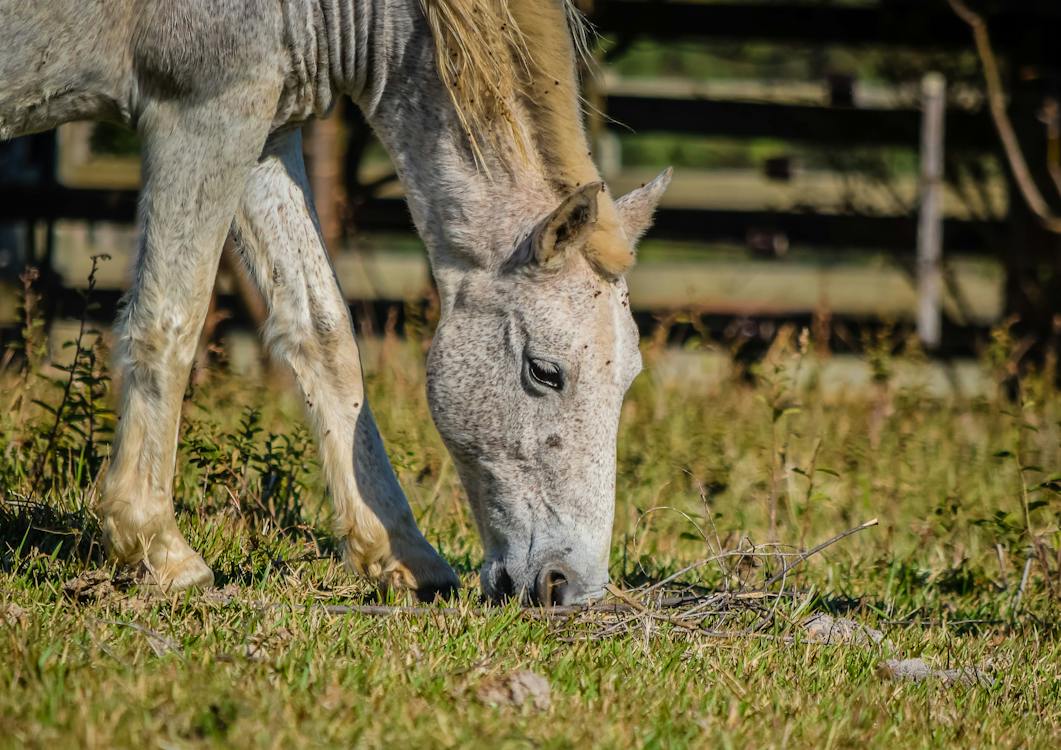
Move over fancy suppers; sometimes, simplicity is key. Pasture often forms the crux of a horse’s diet, brimming with natural goodness. But when it lacks in abundance, hay is the next best horse food option. Yet, like a gourmet meal, it’s all about quality ingredients. Make sure your hay boasts a wealth of nourishing grasses.
Pasture
Pasture, bursting with grass and plant diversity, is typically all a horse requires. However, even though there may seem ample for everyone, the quality of your pasture determines if it can fully meet your horse’s dietary needs.
Hay
When pastures resemble a desert, or it’s the heart of winter, hay is your savior. If it is high quality, it can be just as nutritious as fresh pasture.
The Importance of Balanced Grain in Horse Food
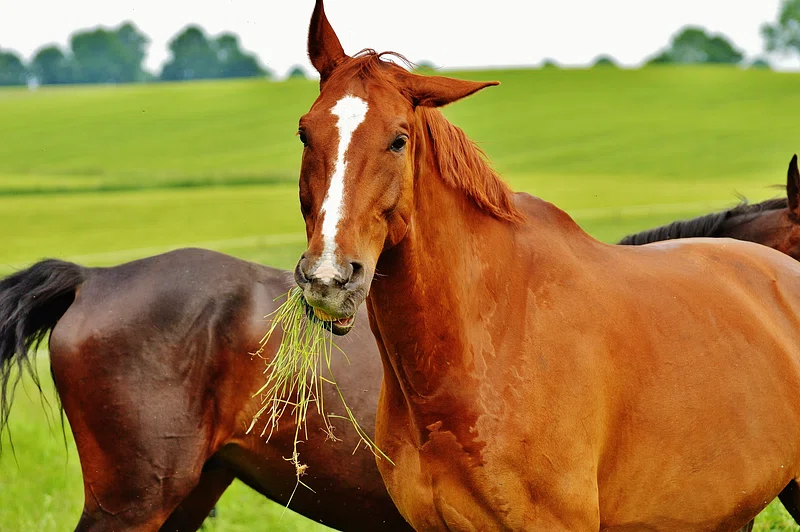
Now let’s take a trip to the pantry and pluck out some natural grain. Think oats and prepared concentrates. However, serve them as supplement scoops, not full platter meals. Feeding an excess of grain can lead to colic in horses, resulting in a sickly equine. The rule of thumb, a serving of a pound or two at a time.
Nothing but a Treat: Tempting Morsels for Your Horse
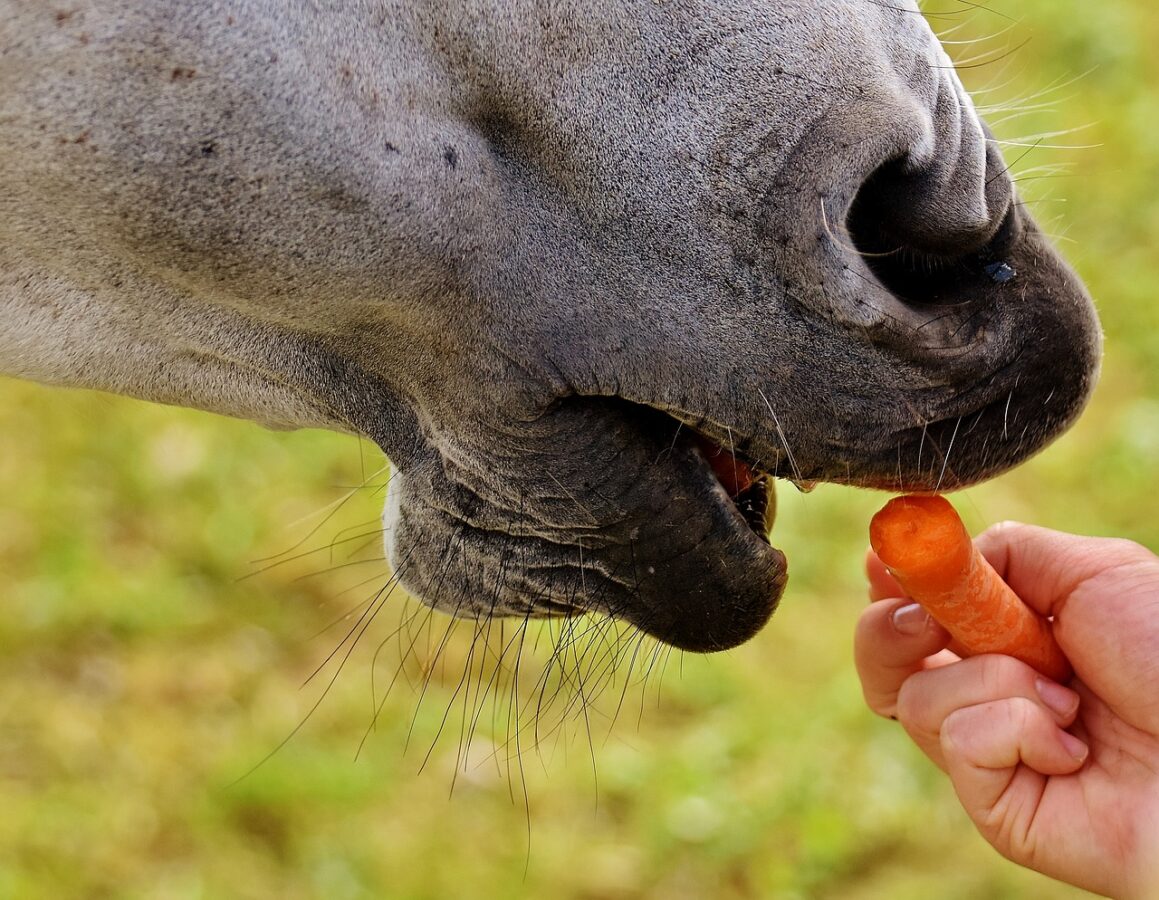
Then comes the part every horse eagerly waits for—treat time! Consider carrots or apples—a favorite amongst horses. But remember, treats are akin to dessert, not an entire meal. Ensure you slice hard fruits or veggies small enough to prevent choking hazards.
Blocks of Salt: Satisfying a Horse’s Need for Minerals
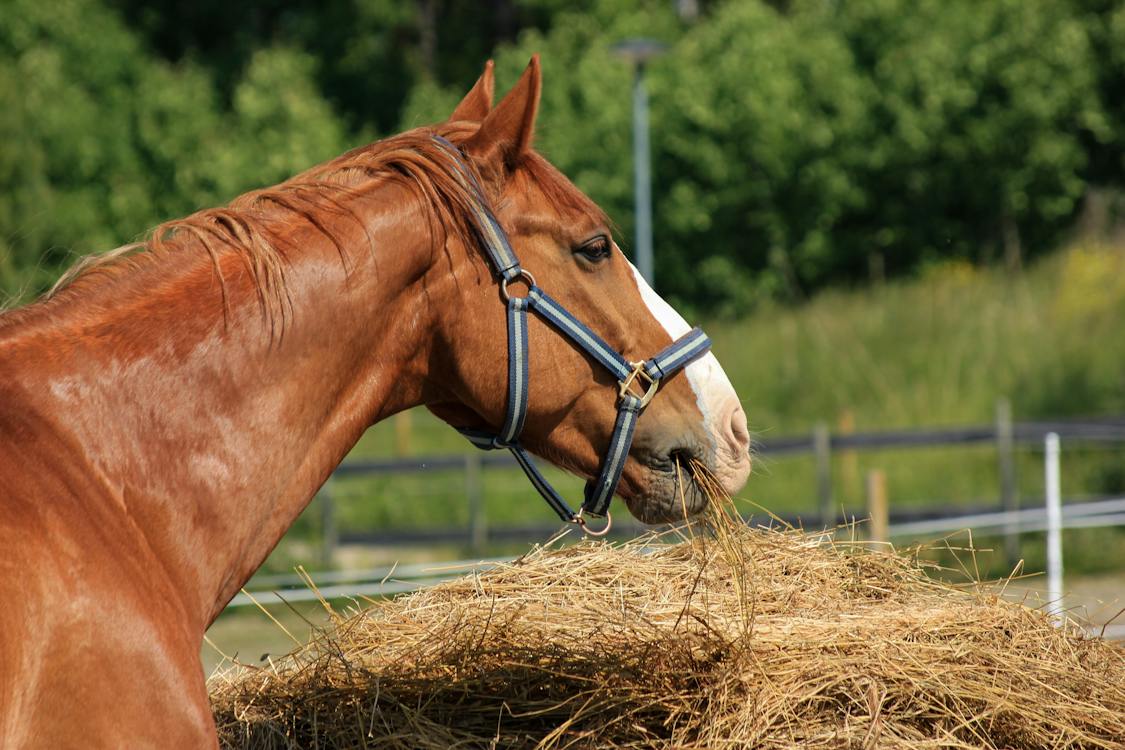
Besides munching on their favorite herbs or grass, horses also need minerals and salts. While good pasture and quality hay naturally contain minerals, a salt lick or block supplements this need. There’s a smorgasbord of options, each packed with different combinations of salts and minerals. Depending on the horse’s requirements, the right choice may vary.
Size Does Matter: Alfalfa Cubes for Horse Food
When on a trail ride or journey where good grazing isn’t accessible, you’ll long for an alternate food solution. This is where alfalfa cubes pitch in. While they’re not daily chow, they’re convenient on the go.
Horse Food Serving 101
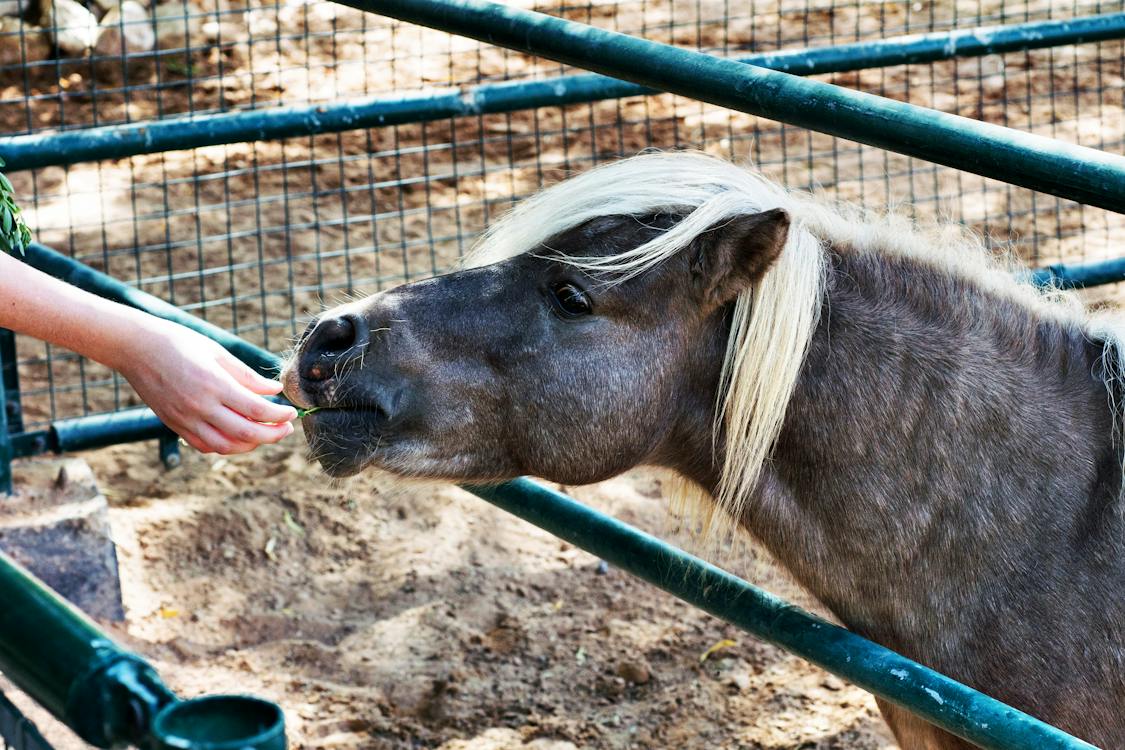
Deciding what to serve is one part of the puzzle; knowing how to serve it is the other. With pasture, horses will graze throughout the day. However, hay is best served in small amounts, two or three times a day.
Hydration is Essential
Apart from focusing on food, ensure you provide an adequate supply of clean water to your horse. It’s as essential as the food itself!
Related Resources: